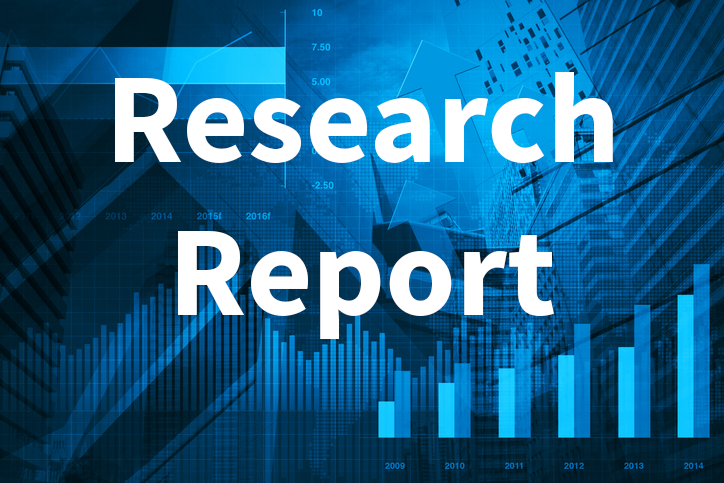2022: The year of AI in B2B
Published by maria gbaf
Posted on January 13, 2022
5 min readLast updated: January 28, 2026

Published by maria gbaf
Posted on January 13, 2022
5 min readLast updated: January 28, 2026

In 2022, AI is pivotal in transforming B2B sales, offering real-time insights and helping businesses navigate market volatility.
 By John Bruno, Vice President, Strategy, PROS
By John Bruno, Vice President, Strategy, PROS
The past two years have seen a steep acceleration of digital selling, amongst almost all industries, as a result of stay at home guidance and mandates. The shift to e-Commerce in the consumer space was somewhat inevitable. However, there has also been a notable move to the digital arena amongst business-to-business (B2B) sales, as companies and salespeople have been forced to abandon the traditionally in-person orientation of the sales field.
While many companies scrambled during the last two years to repair and keep up with changing circumstances, 2022 will see business leaders investing time and resources in building a robust and optimised sales structure, which meets buyers’ evolving needs and preferences. To do so, B2B sellers will increasingly embrace Artificial Intelligence (AI) in order to facilitate this necessary advancement.
B2B buyers of today
Up until recently, B2B buyers and sellers alike have mainly relied on traditional systems of in-person meetings, client friendships and handshakes. This, combined with gut-feeling and instinct, have conventionally driven the completion of sales and the closing of deals.
The age demographic of B2B buyers today is now late-20s to mid-40s. As such, the expectations of these buyers are different from those of older generations that came before them. The millennials who dominate this age bracket expect the buying experience that they enjoy when purchasing consumer products: personalised offers, seamless processes and a concierge level of service throughout the buying journey. This trend has been accelerated by the shift to B2C2B, in which B2B brands are increasingly supplying directly to savvy consumers.
In order to meet buyers where they are, the secret lies in adopting innovative technologies; namely, AI. Leaders must create a culture where AI is accessible across the company, and meaningful at the B2B customer’s point of research and sale.
The helping hand of AI
By leveraging AI, B2B businesses can place each salesperson within the digital selling journey and empower them to deliver seamless service through AI-based configurable selling tools. This technology can leverage key data points from a vast array of available data sets across a business. For example, AI can offer real-time insights into customer preferences, transforming these large amounts of data into a genuinely meaningful resource.
AI can feed information more quickly and accurately to sales teams, empowering them to dynamically respond to prospective buyers in real-time, with offers that sufficiently meet customer preferences. AI-enabled deep insights into customer activity guide sellers to provide highly personalised offers, suggesting the right products at the right time at the perfect price.
Driven by real-time immediate insights, businesses are able to act more quickly and with more agility and flexibility when it comes to decision-making. In turn, sales teams are empowered to strike the key balance in pricing: finding a price point which customers are willing to pay, but which still protects revenue margins.
Market volatility
Further than just understanding customer preferences, businesses must also have a strong grasp on market behaviour and trends. From supply chain issues to rising inflation (the headline rate of inflation rose to 5.1% in the UK in December 2021 – the highest rate in a decade), external market factors have a considerable impact on revenue margins and pricing. Customers, however, do not want to feel market uncertainty in the form of dramatically varied pricing.
As they head into 2022, smart businesses can leverage AI to help solve this. AI technology can identify real-time market data that allows businesses to better understand an unpredictable economic climate and solve for volatility earlier in the value chain. Rather than completely eliminating volatility, which is not possible, this can mitigate the effects of volatility on the end customer.
AI empowers businesses to identify and collate all types of data and insights from both micro movements and macro trends in the markets, to create commercial strategies to stabilise uncertainty for customers. By enriching market data with intelligent insights, as well as having access to customer information such as buying history, AI will help businesses to set prices that not only shield customers from pricing volatility, but also protect their margins, and ultimately, revenue.
How to guard against the only certainty: uncertainty
Going into 2022, it’s safe to say that the only certainty is uncertainty. The best way for B2B companies, and sales teams in particular, to stay resilient against any upcoming turbulence, is to establish the foundations for personalised and dynamic digital selling.
By providing offers that are personalised and customised to each customer, modern B2B buyers will find their needs and preferences met, as part of a responsive and seamless journey. Furthermore, AI-driven strategies empower businesses to have the flexibility to quickly and dynamically pivot, in order to respond to fast-changing market and customer conditions.
The last two years have proved that this agility is crucial in order for B2B organisations to survive and thrive, even amidst the most adverse conditions. By implementing AI, businesses empower everyone involved in the value chain in a seamless and accessible way.
The article discusses the role of AI in transforming B2B sales in 2022.
AI provides real-time insights and helps personalize the sales process, adapting to customer needs.
AI helps manage market volatility and improves decision-making in pricing strategies.
Explore more articles in the Business category











